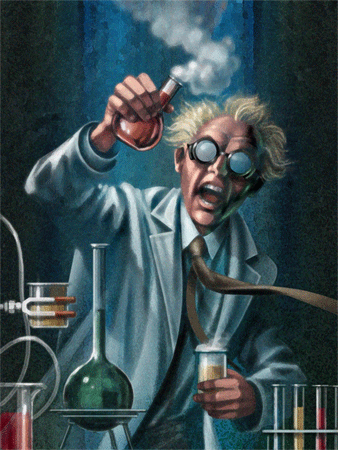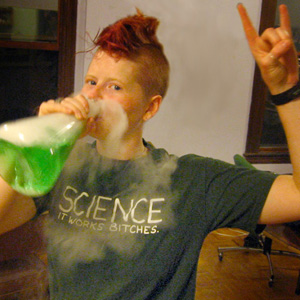
Unscientific America by Chris Mooney and Sheril Kirshenbaum
My process for reading books is never quite as fast as I would like it to be... this inevitably results in always adding more to the eternally growing list of to-reads. For this reason, as much as I enjoy books of the zeitgiest, they too often loose their great impact before I get a chance to comb through the pages. Unscientific America, in this mold, operates very much within the moment; clearly researched in late 2008, and written/published in early 2009, Mooney & Kirshenbaum's work is an extension from Mooney's 2005 Republican War on Science (recommended reading). However, rather than taking aim at a particular political philosophy, the authors have a greater focus upon the American people's malaise and insouciance of the scientific world.
A relatively short work (about 150 pages), but very clear and to the point, the book rose from the failed effort of ScienceDebate2008, an effort during the 2008 presidential election to bring Senators Obama and McCain to a forum in which the scientific issues of the day were discussed (in the same way of the values debate, economy debate, etc...). The Obama campaign politely declined requests, and the McCain camp simply ignored any discussion of the topic. Good idea though, right? A lot of universities, professional researchers, and members of the educated community thought so too. The simple reason why the campaigns declined (or ignored) the idea of discussing American science in a highly public forum was that there was no reason to-- a presidential campaign is purely an animal of survival-- the quadrennial campaign is as lean and as close to public sentiment as metaphorically possible.But why don't Americans like to talk about science?
"Of course we're intimidated by science! Science holds itself above everybody else-- above God, evidently. You guys have been kicking ass since the Enlightenment"
-Stephen Colbert
A quick history of the American relationship with the scientific community through the latter half of the 20th century (although not as cutting or encompassing as in Mooney's earlier work) brings us to the state of science of 2009, after eight years of an outright antiscience adminstration, culture wars on man's origin, stem cells, and some topics you would never think would be debated, to ask where are we now, and where are we going?
[For a full jeremiad about the declining place of science in America, please see older posts.]
While it would be easy to place blame upon the populace for scientific lassitude, Mooney and Kirshenbaum are equanimitous in spreading blame to scientists for popular disconnect. While American interest in scientific advances have consistently slipped in that last fifty years, science itself has become more obtuse-- beautiful, encompassing, and wonderful-- but largely abstract to the general population.
Communication of science, the authors argue, is the greatest failing of the American science-culture system. While science writers have been declining in the waning years of newspapers, the scientists themselves are often left to communicate the wonder of their art to the people, which has simply ne
 ver been a high priority, as researchers themselves prefer research, and there has always been science writers to serve as a medium.This might be why so many Americans hear "scientist" and think of something like this:
ver been a high priority, as researchers themselves prefer research, and there has always been science writers to serve as a medium.This might be why so many Americans hear "scientist" and think of something like this:<------------
when, in reality, so many of us are

more like this --------------->
Okay, not always beakers, but beer pints instead, and not as much dyed hair. But we do rock the fuck out.
Anyway, the book. In the end, there really is no one place or person to hang all of the blame for the problems with how Americans do or do not embrace science. For all that we bemoan and cringe at the actively antiscience population, the truth is that most of our countrymen (and women) are actually very respectful of science and interested when it does pop-up in an understandable form. What is necessary is a new culture, which is actually quite fortunate, as American culture has shown us, it is malleable and powerful when concentrated. Let's not let this decade's ascendancy of the geek stop with a complacency that the Bush years are over, there is always a great amount of work to be done. It can always be better. Both scientists and Americans are defined by a strong attachment and dedication to consistent, hard work. Both are capable.
No comments:
Post a Comment